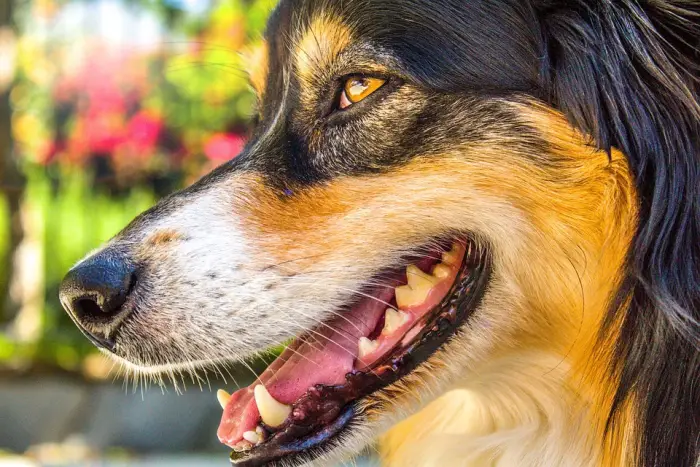Consequences of neglecting dog’s teeth
Pet owners are often surprised at the dental care they need to provide to their dogs. Like people, dogs need their teeth cleaned, and dental check-ups to ensure proper health. Dental health affects more than just your dog’s mouth. Improper dental care can result in damaged teeth, cavities, and a dog’s inability to chew. As a result, poor dental health can cause a host of other health issues for your beloved canine friend.
To keep your dog as healthy as possible, start their dental care routine early. Your vet will probably recommend at least annual dental check-ups for your dog. You should inspect your dog’s teeth weekly, keeping a lookout for the following signs:
- Increased salivation
- Reluctance to chew or pain when chewing
- Missing or broken teeth
- Bad breath
- Red, swollen or bleeding gums
To care for your dog’s teeth at home, provide them with Pet Lab Dental Formula. These specially formulated rawhide chews help to remove plaque and tartar from hard to reach places in your dog’s mouth. The chews help to strengthen your dog’s teeth and gums, building a good foundation for healthy teeth throughout your pet’s life.
A dental chew should be sized correctly and used under direct supervision. Make sure your dog does not swallow the chew whole, as this can cause digestive issues. Dental chews can only work effectively if your dog enjoys the taste and sensation of the chew and chews on it for some time. If they can consume they chew in just a few bites, they are not getting the proper dental benefit.
You need to start brushing your dog’s teeth from an early age so that he can get habituated with the process. You can buy a toothbrush that fits over the tip of your finger or use a human toothbrush with soft bristles. Use a toothpaste specially designed for dogs, as your dog will swallow a significant amount of the paste, and you want to ensure it is entirely pet friendly.
If you are using high-quality dental chews, you can brush your dog’s teeth two to three times a week. If you are not using chews with special additives, you need to brush his teeth daily. As this can add up to a significant amount of time, Pet Lab dental chews will help save you time and provide a daily treat that your dog will enjoy.
Your veterinarian may recommend professional cleanings. Professional teeth cleanings become more frequent as your dog ages, as older dogs are more susceptible to periodontal disease. They require general anaesthesia, so these processes are less frequent in dogs than humans.
Plague buildup contains bacteria, germs, and food particles. When plaque is allowed to remain on teeth, it turns to tarter. Tartar above the gumline is visible, but it can also buildup below the gumline. When this happens, your dog’s teeth may look white and clean, but that does not mean they are healthy. Unseen tartar, below the gum line, can cause inflammation and even infections in your dog’s teeth. The inflammation or infection can cause your dog pain and needs immediate treatment by a veterinarian.
Caring for your dog’s teeth is about far more than keeping their smile looking great, and reducing bad breath. Periodontal disease can lead to tooth loss, kidney, liver, and even heart problems. Bacteria and toxins from poor dental hygiene can travel from the mouth to the bloodstream, causing life-threatening or life-shortening diseases.
Always follow your veterinarian’s recommendations to provide the best oral care for your dog. Your vet should inspect your dog’s teeth on every routine visit, and give you a plan of care to ensure that your dog’s oral care is part of keeping your pet a healthy, happy companion for years to come.

All images are from our Animal’s Look Facebook page fans except this one:
7. pixabay.com/photos/australian-shepherd-dog-domestic-4236037

